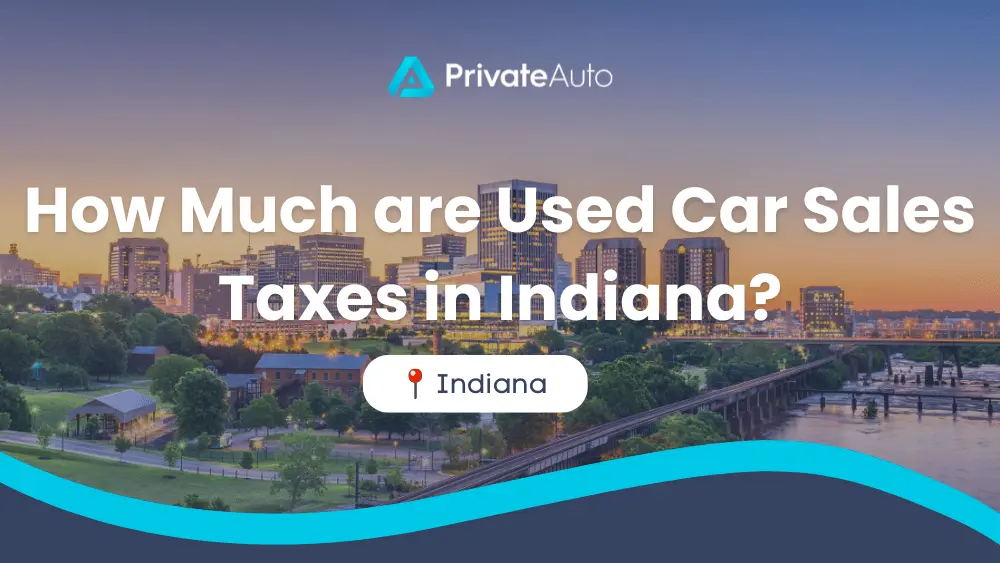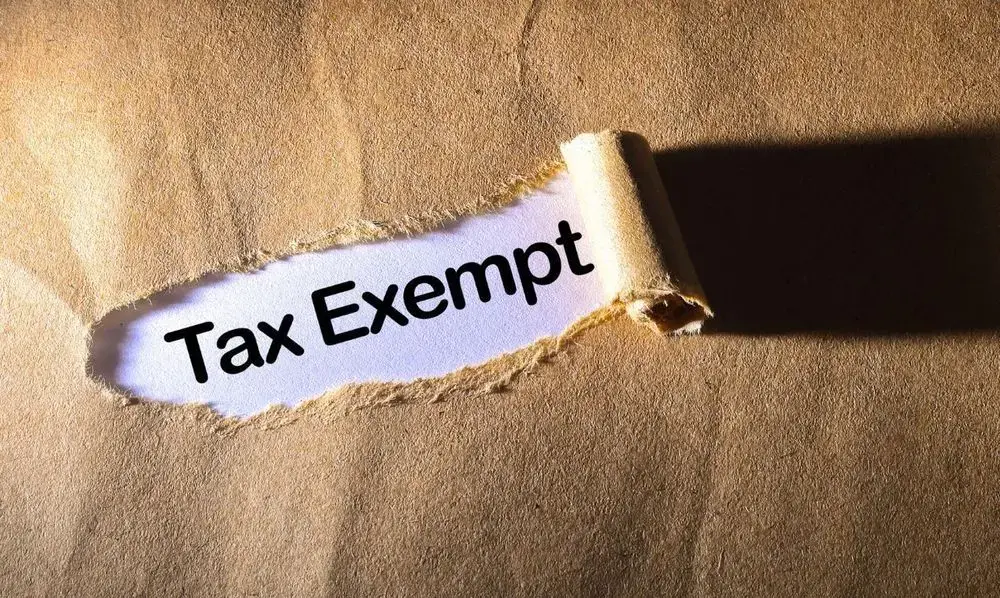When buying a used car in Indiana, don’t get caught off guard by the state’s vehicle sales tax. We give you the lowdown so you know what to expect.
Indiana’s motor vehicle sales tax is 7% of the vehicle’s purchase price. Unlike many other states, Indiana has no county sales tax. 7% places Indiana in the top-tier bracket for sales tax rates. Fortunately, 7% is the maximum you’ll pay in sales tax in Indiana, unlike states such as California, in which local governments can tack on additional sales taxes over and above the state’s tax rate.
How much tax will I pay?
Do you Pay Taxes When you Purchase a Car From a Private Party in Indiana?
Sales vs Use Tax
2. You paid no sales tax in another state, in which case you owe the full 7% Indiana sales tax. Let’s say you bought a used car in Alaska and didn’t pay any sales tax, given Alaska’s 0% tax rate. You’ll pay Indiana’s full 7% sales tax.
3. You paid less than 7% sales tax in another state, in which case Indiana charges you the difference. Let’s say you buy a used car in Ohio for $20,000. Ohio’s tax rate is 5.75%, so you paid $1,150 (.0575 X $20,000) in Ohio tax. When you go to register the car in Indiana, your total tax bill will be $1,400 minus the $1,150 you already paid in Ohio, for a total due of $250 to Indiana.
4. You paid more than 7% in the other state (for example, California levies a 7.25% tax on vehicle purchases). We wish we could tell you Indiana will give you a refund, but no. At least they won’t charge you any more tax.
5. To report sales and use tax, fill out the certificate of gross retail or use tax paid (Form ST-108).
Indiana License Plates, Title And Registration Fees
To register your vehicle at the Bureau of Motor Vehicles (BMV) branch office, you must show proof of vehicle insurance. The first time you register a passenger vehicle, it will cost you $21.50 plus the $15 title transfer fee.
Indiana’s standard license plate fee is included in the registration fee. A vanity plate costs an additional $45.
How does Indiana calculate taxes?
How is Used Car Sales Tax Calculated in Indiana?
If the DOR suspects that the purchase price of the vehicle was artificially decreased, they will calculate sales tax based on the car’s fair market value.
The DOR establishes what the car is worth on the open market by referring to Kelley Blue Book or other reliable sources on used car prices. If they conclude that the car’s fair market value is greater than its purchase price, they can opt to base sales tax on the fair market value.
It is important to note that underreporting the purchase price of a vehicle in order to avoid paying sales tax is illegal. If you are caught doing this, you could be subject to a fine of up to $5,000.
How do I pay the Indiana car sales tax?
How to Pay Indiana Vehicle Sales Tax
1. To transfer ownership of the vehicle, you and the seller must complete the necessary paperwork, including the bill of sale (when you buy a used car on PrivateAuto, we provide an official Indiana bill of sale and prompt both of you to sign it in our app at the appropriate stage of the transaction process). You’ll need the following documents to transfer car ownership in a private transaction:
2. The original car title.
3. Proof of Indiana insurance.
4. The buyer and the seller’s valid driver’s licenses or IDs
5. Calculate the amount of sales tax due. Multiply the vehicle’s purchase price by 7%.
6. Fill out the sales tax form.
7. Submit payment for all taxes and fees.
8. Get payment proof from the Indiana Department of Revenue.
9. Get your registration, title and a new license plate. Once you’ve paid the sales tax and turned in the necessary documentation, you’ll get your new registration and title for the car. The title and registration will show that you bought the car and that the sales tax has been paid. You will also get your license plate in mail.
If you buy a used car from a private seller,it is recommended that both you and the seller go to a BMV branch office to finish the transaction, which protects both of you. If you do not complete the transfer of title within 30 days of the sale, you will be charged a $30 late transfer penalty fee.
Can I avoid paying sales tax in Indiana?
How to Avoid Paying Sales Tax on Cars in Indiana?
Indiana Car Sales Tax Exemptions
Here are some sales tax exemptions for used vehicle purchases in Indiana:
- Purchases by tax-exempt organizations. In Indiana, certain tax-exempt organizations, such as charitable organizations, educational institutions, and government agencies, may be exempt from sales tax on vehicle purchases. To qualify for this exemption, the organization must be registered as a tax-exempt organization with the Indiana Department of Revenue.
- Purchases by non-residents. If you’re a resident of another state and are buying a used vehicle in Indiana, you won’t owe Indiana vehicle sales tax. You will owe tax in your state, unless you’re lucky enough to live in one of the states that don’t charge sales tax.
- Purchases of certain types of vehicles. Indiana provides specific exemptions for the purchase of certain types of vehicles based on their designated use. For instance, vehicles utilized for agricultural purposes, such as farming, may be exempt from sales tax. To qualify for the exemption, however, the vehicle must be used solely for the exempt purpose (such as agricultural activities in the case of farm vehicles).
Is it better to go to a dealer?
Is Purchasing a Car from a Dealer Better?
A lot of people mistakenly believe that buying a car from an Arkansas dealer saves money. The opposite is true.
- Dealerships charge documentation fees above and beyond all the other taxes and fees you have to pay (the other taxes and fees are exactly the same whether you buy from a dealer or a private seller, by the way). An average documentation fee in Arkansas is $110.
- Used car dealerships typically charge higher prices. Their business model is based on buying low and selling high to generate the spread that keeps them in business. To get the best deals, skip the middleman and go directly to private sellers.
We do admit that dealers bring a certain amount of convenience that you don’t traditionally get when you buy from a private seller. In fact, that’s why we exist. PrivateAuto gives you dealer-like convenience in the palm of your hand while allowing you to transact peer-to-peer with regular folks like yourself.
By shopping for a used car on PrivateAuto, you avoid the doc fee and get lower prices by purchasing directly from private-party sellers.
Indiana Vehicle Sales Tax Calculator
Sell or Buy a Vehicle Online With PrivateAuto
Our innovative platform connects buyers and sellers and gives them all the tools to complete the deal, from in-app financing to secure messaging to integrated payments. You can also schedule a test drive and negotiate the price without ever disclosing your personal information.
Here’s how you can sell your car in Indiana with a few simple steps:
1. Gather necessary documentation
2. Register on PrivateAuto and get verified
3. List your car
4. Set your terms
5. Vet incoming offers
6. Choose a buyer
7. Schedule a meeting
8. E-sign documents
9. Get paid, instantly
10. Transfer title
Indiana Vehicle Sales Tax FAQ
Which state has the cheapest car tax?
The states with the cheapest car tax are Alaska, Delaware, Montana, New Hampshire, and Oregon, with a tax rate of zero. Nevada has no taxes on private-party car sales, though it does have them for dealership purchases.
If you really want to avoid car sales tax, you might consider moving to one of these states.
With the exception of the above states, all US states charge sales tax on private-party vehicle purchases. There are some states, such as Oklahoma, North Carolina, Colorado, and Alabama, that charge 4.5% or less.
How do I calculate Indiana sales tax?
Calculate Indiana sales tax by multiplying your vehicle’s purchase price by .07. Let’s say you find a stunning Toyota Tacoma for $23,000. You’ll owe $1,610 in state sales tax ($23,000 multiplied by .07).
Does Indiana have excise taxes?
The state of Indiana has excise taxes. Excise taxes are levied on specific goods or services, such as gasoline, tobacco, and alcoholic beverages. Excise taxes in Indiana are used to fund a variety of programs, such as education, transportation, and public safety.
The following are some of the excise taxes that are levied in Indiana:
– Gasoline tax: The gasoline tax in Indiana is 20.3 cents per gallon.
– Diesel fuel tax: The diesel fuel tax in Indiana is 24.3 cents per gallon.
– Tobacco tax: The tobacco tax in Indiana is $0.995 per 20-pack.
– Alcohol tax: The alcohol tax in Indiana is $2.68 per gallon.
Excise taxes can vary from year to year. If you have any questions about excise taxes in Indiana, you should consult with a tax advisor
Is it cheaper to buy a car in Indiana?
Indiana can be a cheap place to buy a used car. With an average used car price of $21,961, Indiana’s used cars are approximately 13% lower than the national average.
What rank does Indiana have in cost of living?
Indiana has the eighth-lowest cost of living, with a cost of living index of 89.9.The cost of living index measures how much it costs to live in a specific location in comparison to the national average. It is determined by comparing the prices of a basket of goods and services in various locations. Housing, food, transportation, healthcare, and recreation are all part of the basket of goods and services.
Is there a way to avoid paying sales tax on a car purchased in Indiana?
The only way to avoid paying sales tax is to fall under one of the sales tax exemption categories. Sales tax exemptions are available for a variety of reasons, such as for religious, charitable, or educational purposes.
If you believe you may be eligible for a sales tax exemption, contact the Indiana Department of Revenue to find out.
Additional Reading
Can I Transfer a Vehicle Title Online?
What is a Salvage Title?
How to Replace a Lost Car Title?
Used Warranty Guide
What do I do With my Plates After Selling a Car?
Vehicle Identification Number Guide
Car Transport Guide
Safe Ways to Transfer Money in a Private Car Sale
Vehicle Value Calculator




